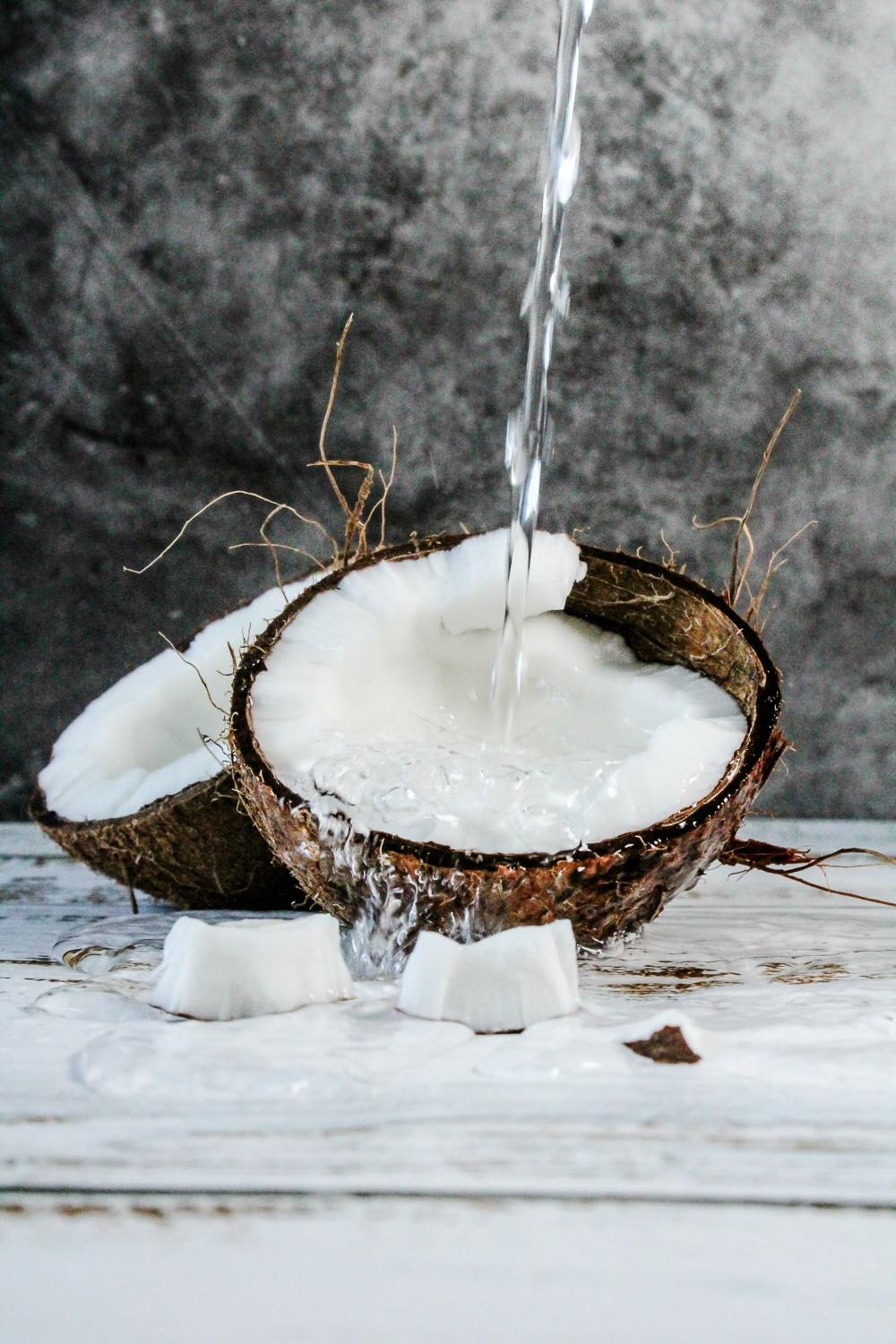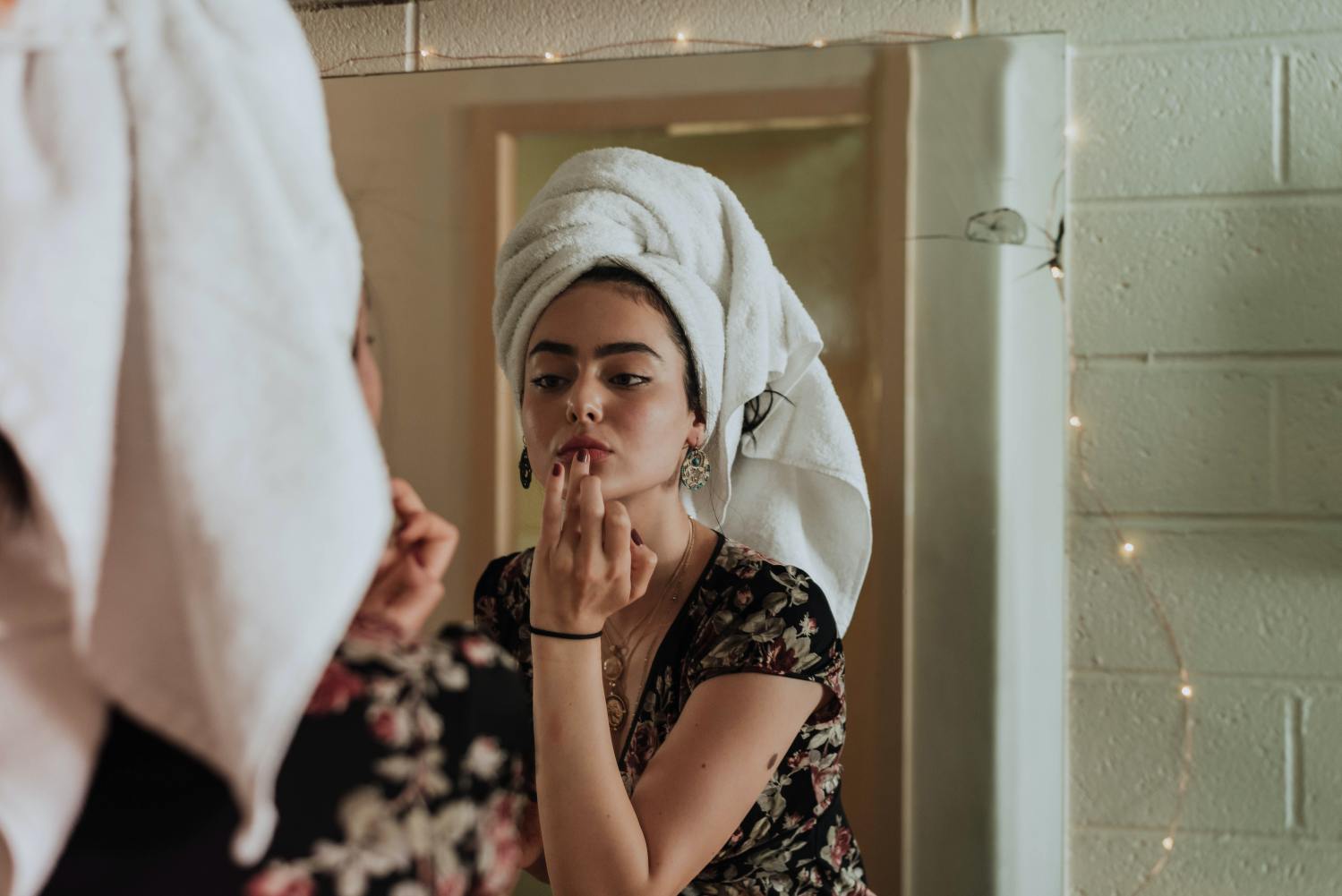Coconut oil for skin is very popular, though it's not suitable for every skin type. Keep reading to find out everything about coconut oils for skin, the good, the bad, and everything in between.
What makes coconut oil so special

We put in our coffee and use it as a hair mask. It's also a popular way to remove makeup, so what makes coconut oil so good for our wellbeing inside and out?
Coconut oil contains nourishing fatty acids which hydrate and protect the skin. These acids include linoleic acid, a.k.a. vitamin F, which helps the skin preserve moisture, and lauric acid, with its antibacterial properties.
Of course, we're talking about virgin oil, which has no additional ingredients and is suitable for both eating and skin treatments.
The all-natural coconut oil offers small UV protection. It's good enough for gloomy days since researchers claim it has a sun protection factor (SPF) 7. However, it is not a replacement for sunscreen, and it should be used only in cases of emergency.
It fights bacteria and helps with gingivitis. All you have to do is rinse your mouth daily, as you do with mouthwash.
Coconut oil can help fight dermatitis, and it is helpful to use it on children fighting eczema.
Due to its antibacterial properties, this oil makes it a great natural deodorant.
You can use it to treat cracked heels as well, and on chapped lips instead of lip balms.
Despite all these excellent properties, there are some concerns regarding coconut oil treatments for the skin.
Coconut oil for problematic skin

If you have dry skin, you can use coconut oil as an overnight mask/moisturizer. We'll discuss it a bit later. Now, let's see who shouldn't play with this magnificent natural product.
Some think coconut oil clogs pores. That's especially true for those with oily skin and visible blackheads. However, researches suggest that coconut oil fights acne due to its anti-inflammatory properties.
Lauric acid accounts for nearly half of the fatty acids in coconut oil. It has been shown to kill off bacteria's strain linked to acne. Overall, if you have problematic but not oily skin, coconut oil might be just what you need.
However, if you're prone to breakouts, the oil will make matters worse.
Similarly, if your skin is sensitive, use smaller amounts and start using coconut oil by placing it on a small skin section. It's a trial and error situation since the oil is quite heavy and might cause breakouts.
You can use it on your body, as well as on your face or hair. Yet, you should test it first to know whether you'll have an adverse reaction.
Unless you're allergic to coconut, these reactions will go away naturally and within days. Despite all the information, we're still limited to animal testing.
That's why you should do your own research, especially if you're not sure what type of skin you have.
Dry skin and coconut oil benefits

The main side effect is pore-clogging and breakouts since the oil is heavy and potent. Yet, if you have dry but not sensitive skin, this oil might update your beauty routine.
A study concluded that people with mild to moderately dry skin should use virgin coconut oil for hydration. Keeping your skin hydrated means keeping it healthy to fight bacteria and even slow down a natural aging process.
Before you start applying coconut oil, do a patch test. If everything goes as planned, you can use it as a powerful moisturizer and start your improved beauty regime.
Take one tablespoon of oil and rub it with your palms. Gently place it on your moist face and neck, and remove all extra oil with a tissue.
Leaving a thin layer of coconut oil overnight will surely rejuvenate your dry skin. It will also make your makeup look better since it acts as a natural primer.
This only applies to cold-pressed coconut oil, which is also known as virgin coconut oil. If you're unsure which one is the best for your skin, check out the labels. If it says organic, natural, and non-hydrogenated, it's the real deal.
Finally, instead of completely replacing your beauty routine, you should use coconut oil two or three times per week. During other days use your nightly face creams.
Removing makeup with coconut oil

Coconut oil is antibacterial, anti-yeast, and as such it's great to use as makeup remover.
Liquify using your palms and gently rub against your skin. Pay special attention to your eye area to remove all mascara and eyeshadow traces.
It will clean up all makeup nicely, and once you're done, rinse it with warm water. It's best not to use any kind of towels or cotton pads; instead, apply it with fingers.
Coconut oil is safe to use as a makeup remover, but only if it is organic, unrefined, and cold-pressed. Since it doesn't stay on your skin for more than a few minutes, it cannot clog your pores. This simply means that you can test it even if you have sensitive or oily skin.
If your skin accepts it, coconut oil will replace a classic makeup remover for good. If not, there are still many all-natural oils waiting to be discovered as part of your beauty routine.
Natural oils for various skin types

If your skin is not suitable for coconut oil, there are many other oils you should try out.
Tea tree oil has anti-inflammatory and antimicrobial properties. It makes it ideal for acne-prone skin.
This famous essential oil is a wonderful cleanser, and you can mix it with coconut or geranium oil. Apply it gently and avoid the eye area.
Geranium essential oil is another great solution for those who want to add more tonus to their skin. You can use it in a facial steam to rejuvenate your skin, and if you want to apply it on your face directly, you have to dilute it. Use 1-2 drops of essential oil for approximately every 4oz of carrier oil.
Sweet orange oil is packed with vitamin C. It's perfect for helping to heal the skin from a breakout of acne. It works well for all skin types, removes excess sebum from the skin, and keeps it in balance.
If you don't want to dilute an essential oil, check out organic products on the market.
Grapefruit essential oil may contribute to healthy skin by preventing conditions like acne. Citrus oils are common among some of the most popular face lotions and creams due to their anti-aging properties.
It's easy to use: mix warm water with one drop of grapefruit essential oil and one drop of lavender essential oil to wipe the face clean.
Jojoba face oil is moisturizing, antibacterial, and oil-controlling. Most skin types react wonderfully to this oil, and you don't even have to dilute it.
Use smaller amounts during days and 7-9 drops at night. You don't want to look too shiny, and during the night, your skin has enough time to process and take away the best from this oil.
Another great oil is lavender. Not only that its smell will calm your anxious mind, but it reduces inflammation, lessens pain, and cleans the surface of your skin.
Similarly to other oils, you want to test it out, since it may cause breakouts or rashes.
Many natural products will help you have healthy skin on your face and body. But if it works for your friend, it doesn't have to work for you. If you can't choose an essential oil or you're not sure these are suitable for you, there are organic products for every skin type.
These oils are generally safe, and the biggest issues come from using too much product and clogging your pores. In skincare, less is always more.



